The Biggest Blowouts in Super Bowl History

Editor's note: This story originally ran Feb. 3, 2019. Sports Illustrated is republishing it with updates ahead of Super Bowl 59.
While the Super Bowl is considered one of the most highly anticipated events of the year, the Big Game has not always been as hotly contested as some would prefer it to be.
With the 59th rendition of the NFL's championship game just around the corner, we're taking a look at some of the games biggest blowouts.
Biggest Blowouts in Super Bowl History
Super Bowl XXIV (Jan. 28, 1990)
San Francisco 49ers 55, Denver Broncos 10
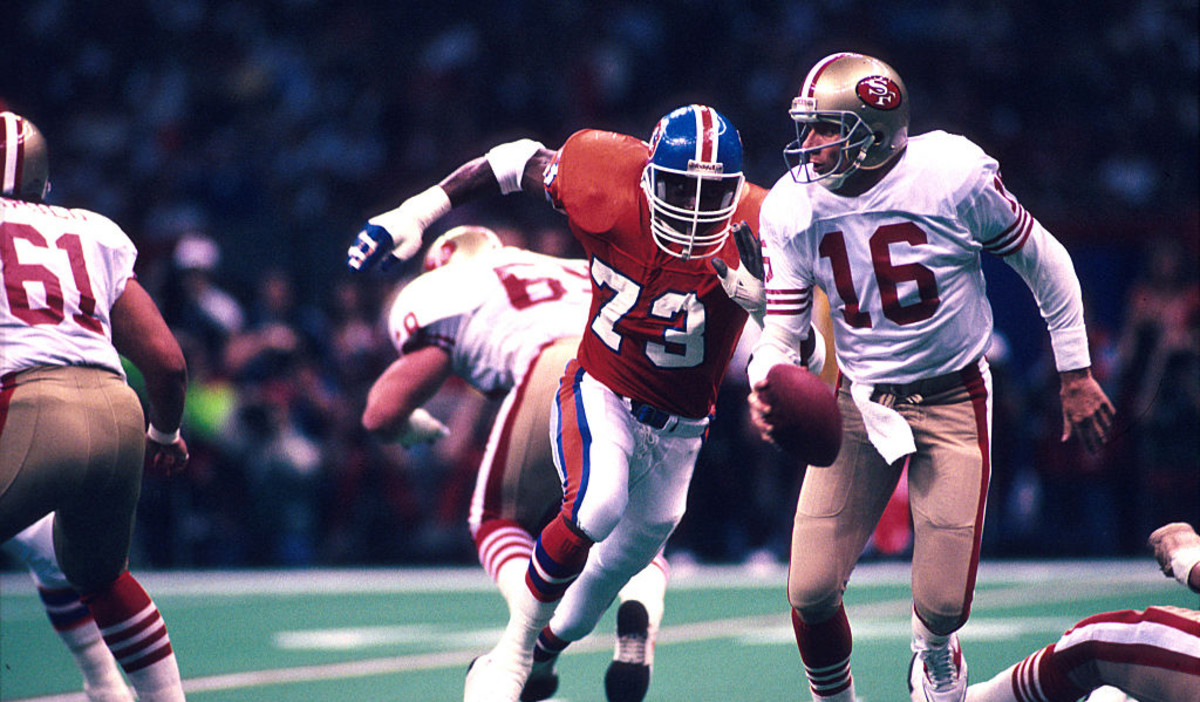
The 49ers boasted the highest-scoring offense in the league during the 1989 season. San Francisco's legendary offense was headlined by quarterback Joe Montana, receivers Jerry Rice and John Taylor, and running back Roger Craig. The Niners rolled to a 14–2 record during the regular season, then defeated the Vikings (41–13) and Rams (30–3) before facing the Broncos. San Francisco went into halftime with a 27–3 courtesy of three Montana touchdown passes. John Elway and the Broncos didn't score their first and only touchdown until the third quarter.
Super Bowl XX (Jan. 26, 1986)
Chicago Bears 46, New England Patriots 10
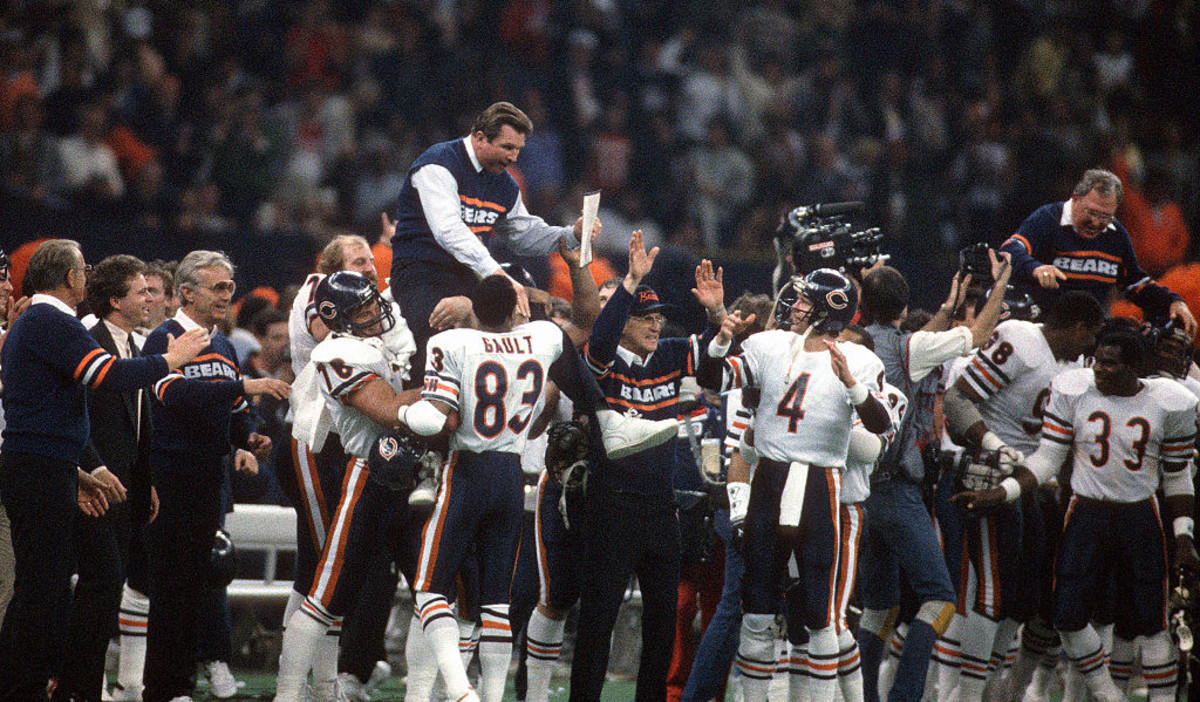
The 1985 Bears defense is widely considered to be one of the best units in NFL history, helping Chicago to a 15–1 regular-season record. The Patriots were first to get on the board thanks to a first-quarter field goal, but Chicago rattled off 44 unanswered points. The Bears defense forced six turnovers and recorded seven sacks, holding the Patriots offense to 123 total yards en route to a 36-point victory.
Super Bowl XLVIII (Feb. 2, 2014)
Seattle Seahawks 43, Denver Broncos, 8
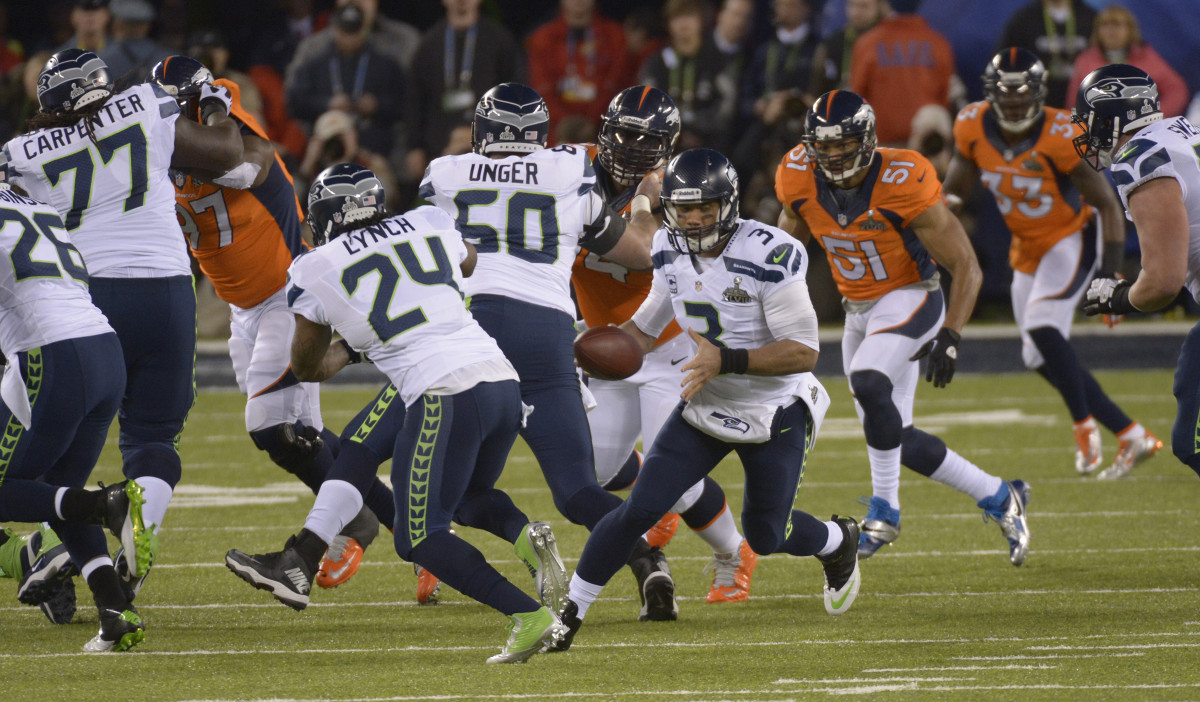
Super Bowl XLVIII pitted the two of the best offensive and defensive units in NFL history against one another. The Seahawks defense, headlined by its "Legion of Boom" secondary featuring Richard Sherman, Earl Thomas, Kam Chancellor and Brandon Browner, proved the more dominant. Seattle kept Denver's offense in check, halting a unit which produced record numbers that season behind quarterback Peyton Manning. The Seahawks forced a safety on Denver's opening drive and never looked back.
Super Bowl XXVII (Jan. 31, 1993)
Dallas Cowboys 52, Buffalo Bills 17
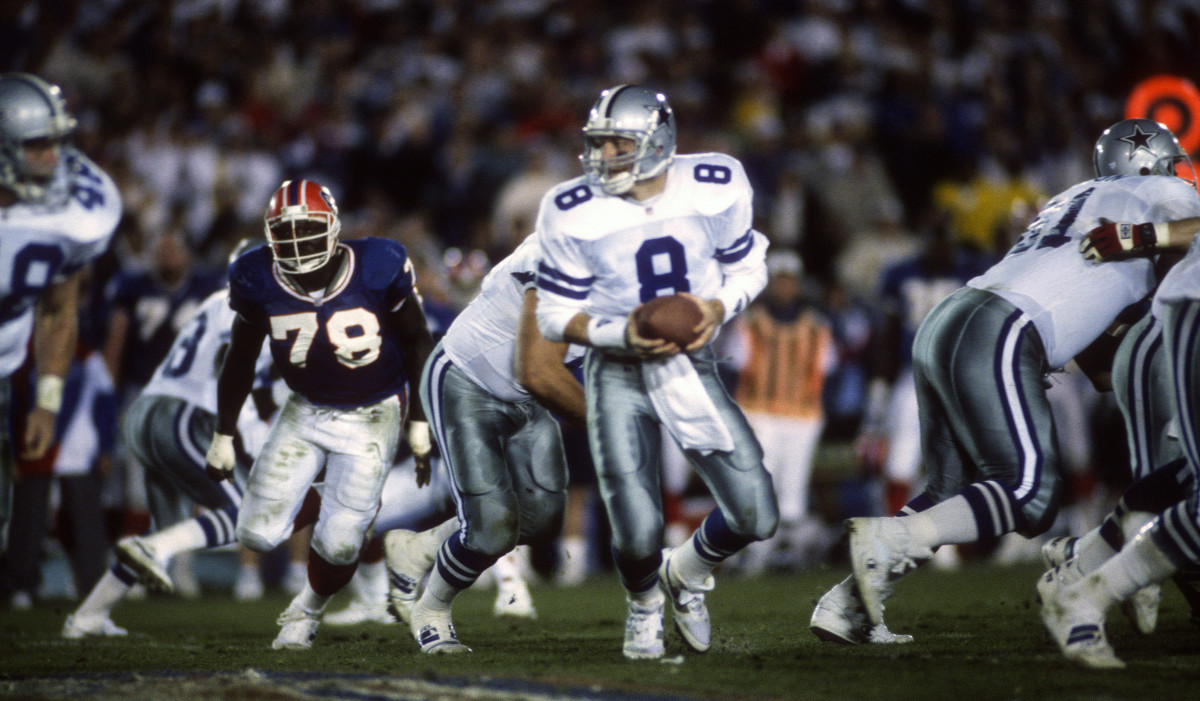
During the 1992-93 seasons, the Bills boasted one of the league's most lethal passing attacks with Jim Kelly under center. Unfortunately for Buffalo, Kelly suffered a knee injury in the first half and was sidelined for the remainder of the contest. Meanwhile, Troy Aikman, Emmitt Smith, Michael Irvin and the rest of the Cowboys offense had its way, leading the charge in a 35-point victory.
Super Bowl XXII (Jan. 31, 1988)
Washington Redskins 42, Denver Broncos 10
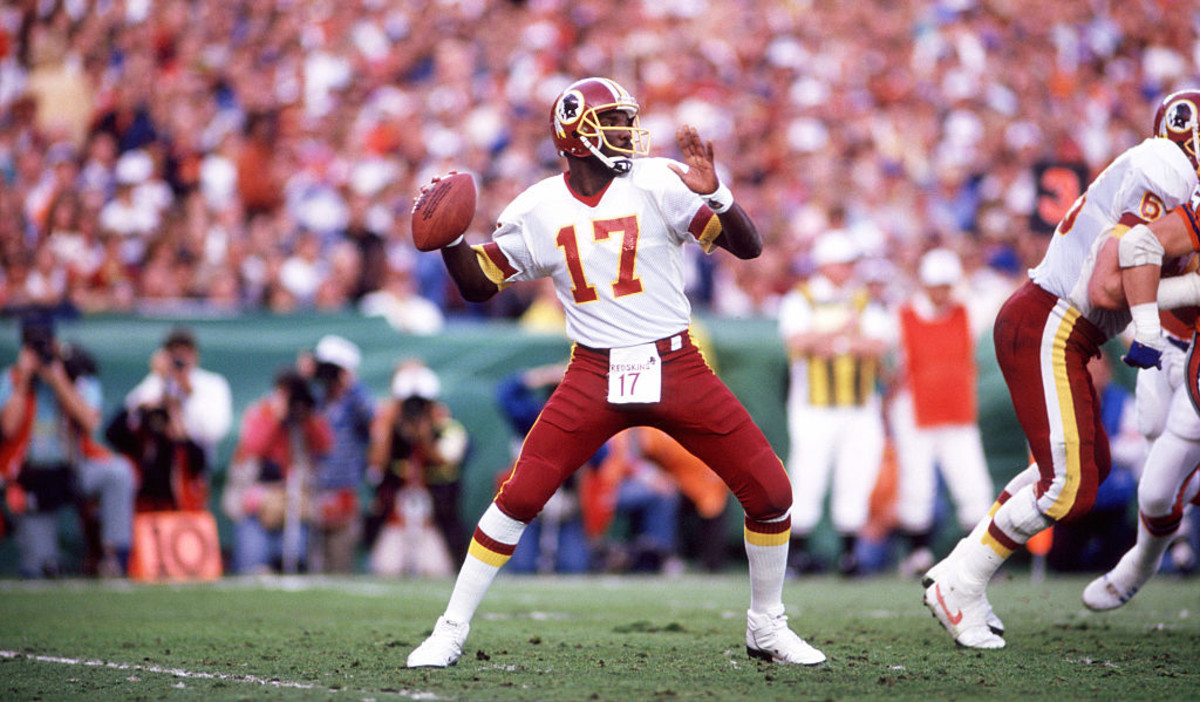
The Broncos, led by John Elway, jumped out to a 10-point advantage in the first quarter, but the game completely flipped in the second. Doug Williams, who appeared in only five regular-season contests (two starts) that season, threw four touchdown passes in the second quarter to give Washington a 35–10 lead entering halftime. Denver never scored again, and Washington went on to capture the Super Bowl title.
Super Bowl XVIII (Jan. 22, 1984)
Los Angeles Raiders 38, Washington Redskins 9
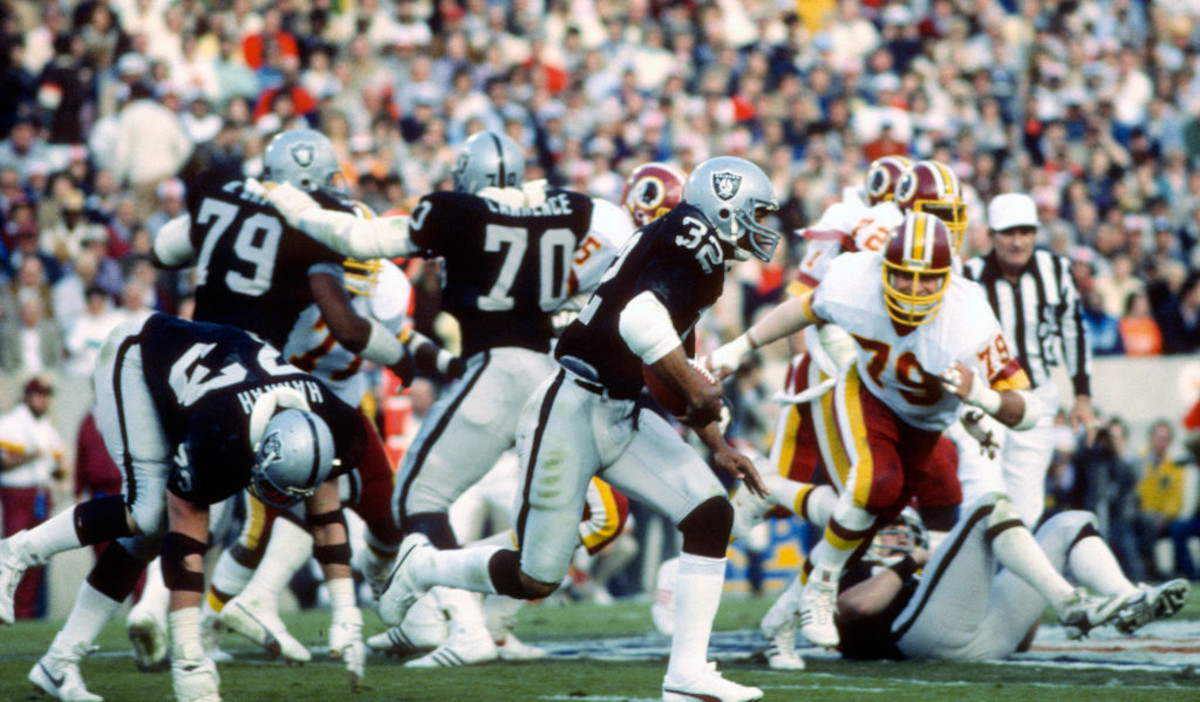
The Raiders rushing attack proved too much for Washington's defense to slow down. Los Angeles running back Marcus Allen, named the game's MVP, rushed for 191 yards and two touchdowns, including a then-Super Bowl record 74-yard carry which gave the Raiders a 35–9 lead in the third quarter.
Super Bowl XXXVII (Jan. 26, 2003)
Tampa Bay Buccaneers 48, Oakland Raiders, 21
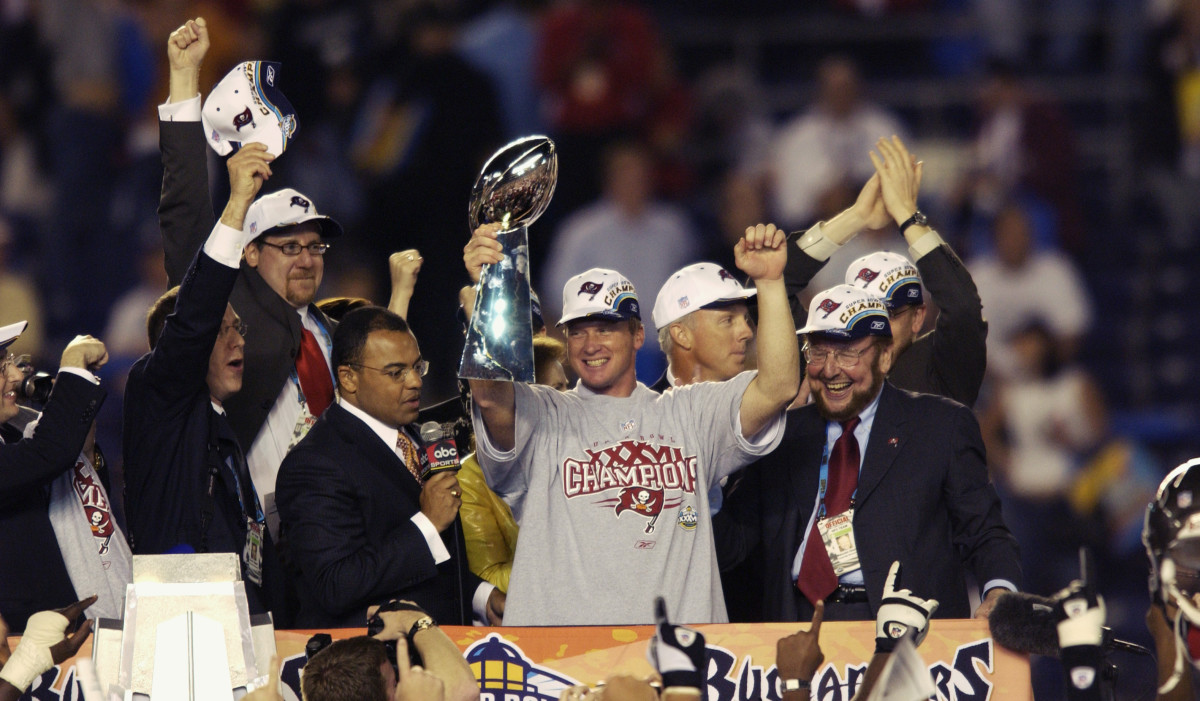
Jon Gruden led the Buccaneers against his former club to help the franchise capture its first championship. Tampa Bay's legendary defensive unit forced Oakland's offense to commit five turnovers, scoring touchdowns on three. It was one of the most dominant defensive displays in modern Super Bowl history.
Super Bowl XXXV (Jan. 28, 2001)
Baltimore Ravens 34, New York Giants 7
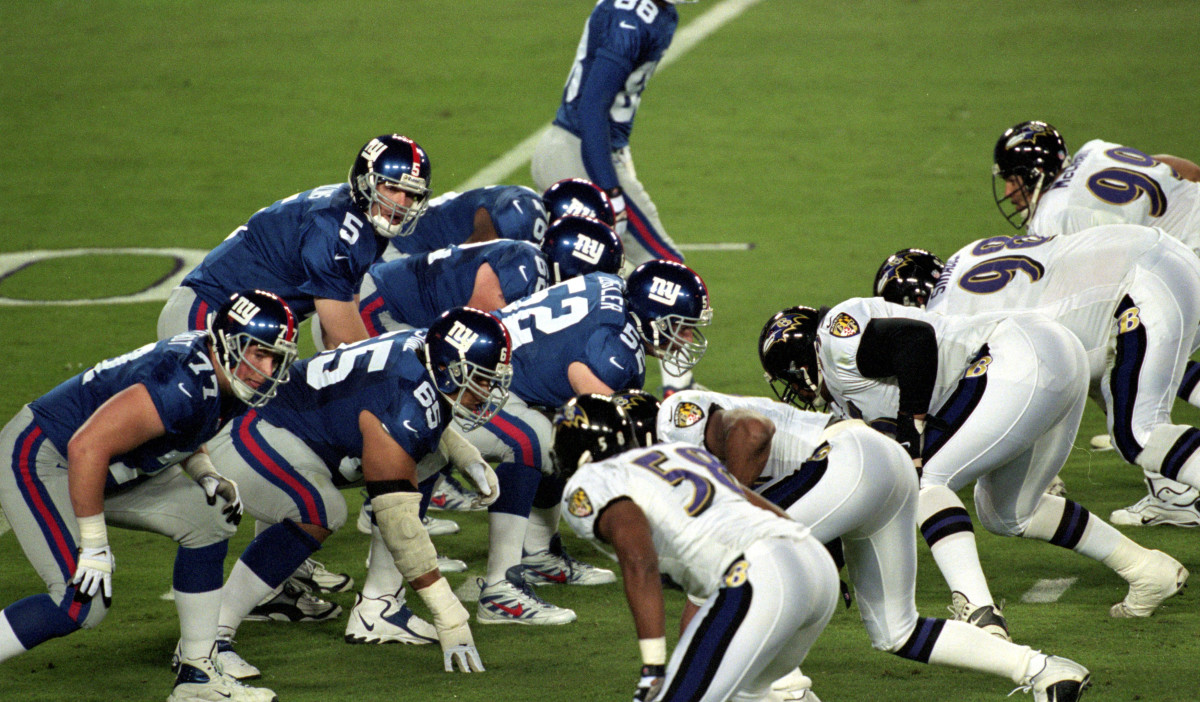
The Ravens defense ranked among the top units in the NFL during 2000-01 season. Led by linebacker Ray Lewis and safety Rod Woodson, Baltimore limited the Giants to just 152 total yards while forcing five turnovers. The Ravens were also aided by their special teams unit, which returned two kickoffs for touchdowns in the win.
